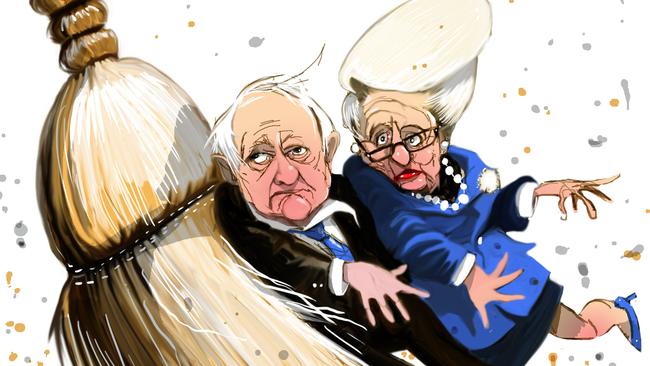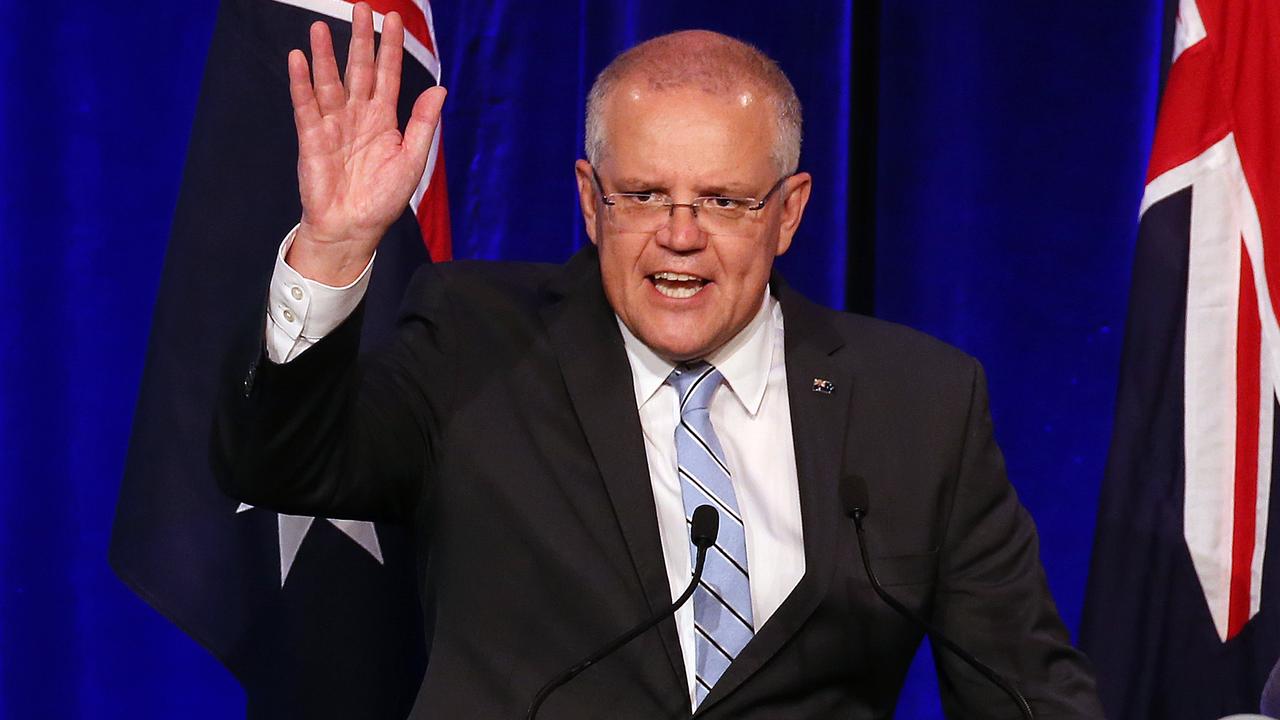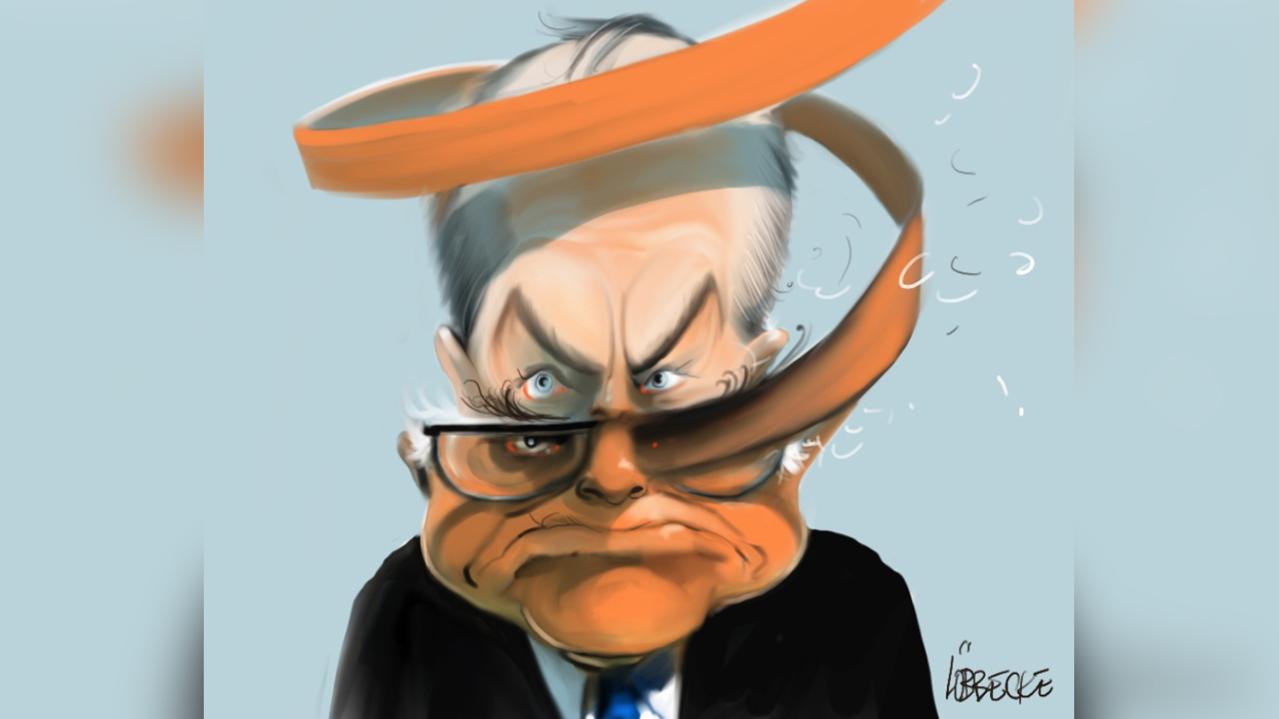A simple Liberal clean-out, with factional warfare on the side

There are four plum NSW-held seats that could see messy preselection contests ahead of this year’s election. The primary concern for Malcolm Turnbull appears to be avoiding these contests turning into open factional warfare. It may already be too late for that.
The Prime Minister must also ensure his team renews, as any business entity must. In fact, Turnbull himself made a similar observation, shortly before nominations opened and the jostling began. He used the same logic to justify a major frontbench reshuffle after taking over the prime ministership, including signalling that if Tony Abbott does continue his political career after the next election a frontbench position is anything but certain.
There is no one size fits all way to analyse the preselection contests — the calibre of the challenging candidates is variable, the role of the factional elders isn’t always a factor, and the value of the sitting MPs continuing to serve the parliament isn’t consistent.
From a professional political perspective, organisational operatives inside the Liberal Party (as opposed to powerbrokers) couldn’t be happy with the exposure the likely contests are getting, especially in this newspaper. However, like it or not clean-outs are a necessary part of renewal. It is the job of preselectors, and ultimately the voters, to judge each contest individually. Where the public will turn on the Liberal Party is when challenges seem factionally based rather than necessary, and there are such examples within the four seats under the microscope.
The seats in focus all have margins of over 10 per cent, making them safe seats. But even double digit margins are no security against an electoral backlash in modern politics. If voters feel popular sitting MPs have been mistreated, they will penalise the new entrant. And of course some margins are artificially enlarged because of the personal following of the member. In other words, backroom sackings need to be explained.
The four seats which could see meaningful challenges against sitting Liberals are Berowra (Philip Ruddock’s seat), Mackellar (Bronwyn Bishop), Hume (Angus Taylor) and Hughes (Craig Kelly). In some cases there is more than one challenger. The respective margins in each seat are 19, 18.8, 14.2 and 12 per cent. As I say, seemingly plumb seats.
But if we start by looking at Hughes, the margin has been steadily improved by the local MP Kelly. While his conservative credentials aren’t personally my cup of tea, he undoubtedly has strong community support and his style of representation is earthy, similar to the previous Liberal member. The seat wasn’t always held by the Liberal Party, and the margin has an inbuilt personal component, even though Kelly has only served the electorate since 2010.
Unseating a relatively new MP can only be justified if the candidate for doing so is of an especially high calibre. That was the case when Turnbull defeated one term MP Peter King to enter parliament in 2004. But the likely challenger to Kelly, Kent Jones, is a local councillor who has served for both the Labor and Liberal parties, so he’s hardly a strong ideologue. Rather, Jones falls into the category of a careerist whose primary goal is seeking representation rather than doing so for a purpose.
It’s exactly the sort of attitude voters are tiring of in their political leaders.
In Hume it is beyond ridiculous that Angus Taylor, a Rhodes scholar who built a successful career in business (during which time he didn’t play party political games, because he was too busy contributing to the economy) might face a challenge from one of his parliamentary colleagues. Russell Matheson, the member for Macarthur, isn’t impressed with the redistribution reducing his margin to under three per cent, so he’d like to use his factional numbers to knock the first-term MP Taylor off to continue on in his unremarkable parliamentary career.
The biggest joke in all of this is that what strengths Matheson does have are his links in the local community, as a former mayor. He’s well placed to fight and hold a margin seat, which is what Turnbull needs if he’s to retain government. Matheson will never rise to become a minister, so why knock off a talent such as Taylor to insert him into a safe seat? It would be a double blow to the Liberal Party.
In Mackellar I find it remarkable that the Liberal Party could even contemplate retaining Bronwyn Bishop for another term. Her betrayal of Abbott by voting against him in September was one of the lowest acts I’ve witnessed as a commentator, after the damage Abbott suffered continuing to defend Bishop as Speaker well beyond when he should have. It was misplaced loyalty which was repaid by political bastardry.
Beyond family members, who in Mackellar would vote for Bishop? Rather than gracefully exit stage right, she is trying to either continue on (to fight terrorism according to her own mouth, seriously), or orchestrate a handover to a factional ally. Her sidekick staffer Damien Jones was as politically wounded as she was during Choppergate, so his ambitions to take over in Mackellar one day were thwarted. So the Bishop plan now is to try and triangulate a shift by Jones’s wife, Natasha Maclaren-Jones from the NSW upper house into Mackellar, thereby allowing her husband to take over the state upper house spot.
I’m not sure I’d run with such a plan when writing a political fiction, because the reeking sense of nepotism might distract from the plot line. Just when Bishop’s legacy looked like it couldn’t sink any further she tries this on.
Finally, we have Ruddock’s seat of Berowra. Ruddock’s 43 year career in federal politics (that’s not a typo) must surely come to an end this year. Its not about his age, or even necessarily his longevity of service. Its about the calibre of the candidate who has patiently sat in the wings, and the fact Ruddock’s previous quality service is a thing of the past.
To be sure, Ruddock deserves to go out with dignity, but that’s become a matter for him. The expected challenger is Julian Leeser — a senior executive at the Australian Catholic University, an accomplished lawyer, and a long time executive director of the Menzies Research Centre. That ticks enough boxes to justify moving on a 43-year veteran with no chance of returning to a portfolio .
There is a long way to run in the preselection contests, with nominations having only opened up this week. While the headlines haven’t been helpful for the Liberal Party, the contests include opportunities to enhance the parliamentary line-up, notwithstanding the factional games also being played.
Peter van Onselen is a professor at the University of Western Australia.



To join the conversation, please log in. Don't have an account? Register
Join the conversation, you are commenting as Logout